Madi, West Nile bishop Championing Resilience to climate change through tree planting Campaign
By Matata Benzamin
On February 17, 2017 amidst the jubilant enthronement of Rt. Rev. Charles Collins Andaku as Bishop of Madi West Nile Diocese, a vision was planted both literally and figuratively. The bishop launched a transformative tree planting and growing campaign to combat the growing impacts of climate change in the West Nile region.
Seven years down the road, this initiative has exceeded expectations. Over one million tree seedlings have been planted, more than 500 hectares of degraded land have been restored, and over 2,000 households have directly benefited. The campaign has grown into a symbol of environmental sustainability, improved livelihoods and community resilience. The diocese having thirteen archdeaconries across West Nile region, are all implementing the tree planting campaign. An independent department has been established to oversee environment issues from diocese to the local churches.
The Genesis of the Campaign
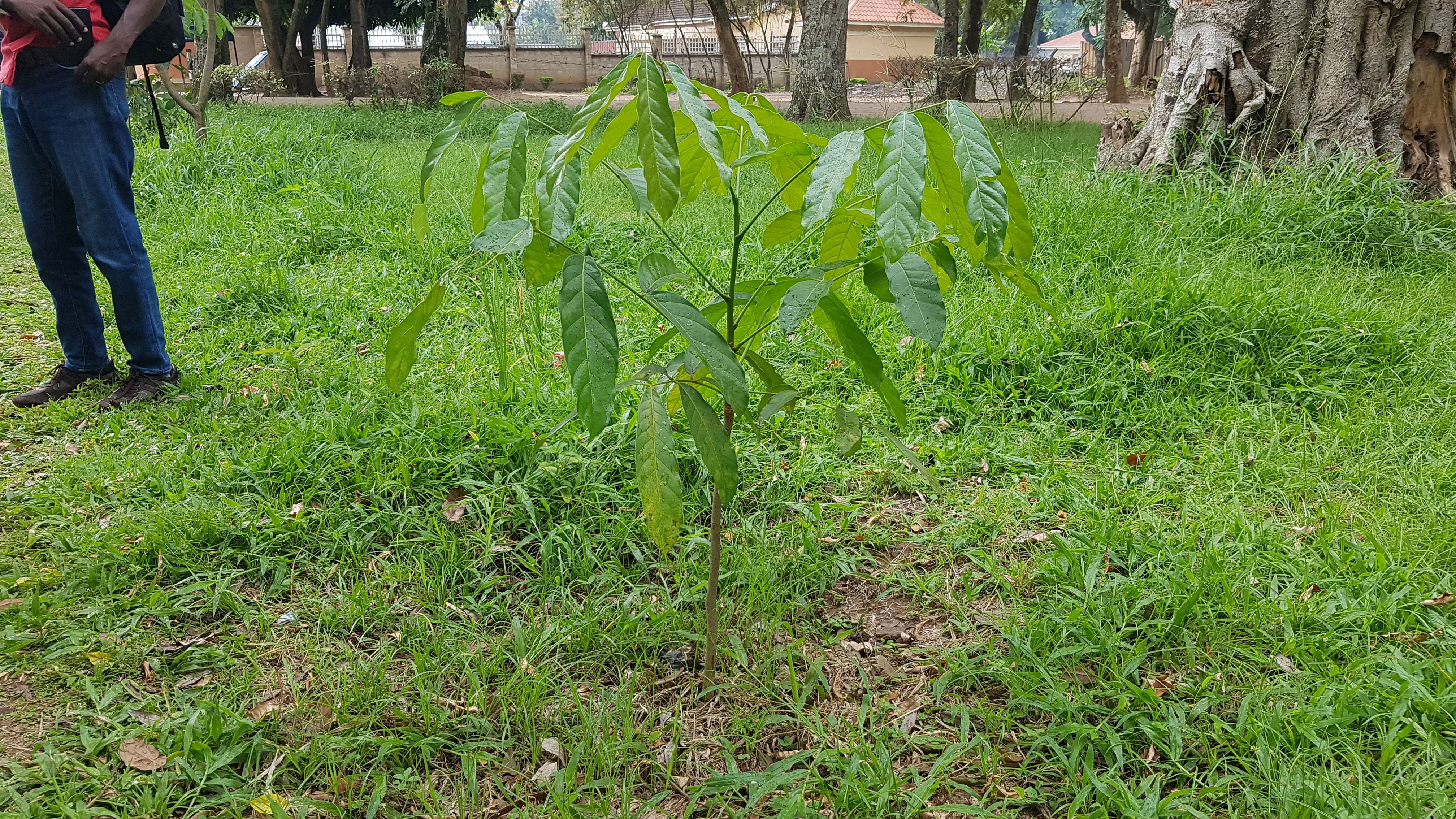
The newly planted trees. Photo by Matata Benzamin
“When I was enthroned, I saw the deteriorating state of our environment,” Rt. Rev. Charles Collins Andaku recalls.
“Deforestation was rampant, and the effects of climate change prolonged droughts, floods, and poor agricultural yields were taking a heavy toll on our people. It was clear that something had to be done. Trees are our green gold, let’s embrace tree planting,” he said.
The Bishop added: “I can give you example, I planted eucalyptus tree which later I lumbered and provided me transport to fly to UK, trees have many benefits including provision of shade, formation of rainfall, firewood, food, money and among others.”
The bishop’s initiative aimed to restore the environment and combat climate change while addressing the socio-economic challenges facing the region. It quickly gained support from diocesan leaders, environmental activists, local governments and the community. The diocese declared every third week of March as Environment week, climaxing with “Tree Sunday,” aiming to sensitize the community to plant and grow trees as many as possible, comprising both fruit and non-fruit trees to combat the effects of climate change.
Community Impact; Sustainability and Livelihood
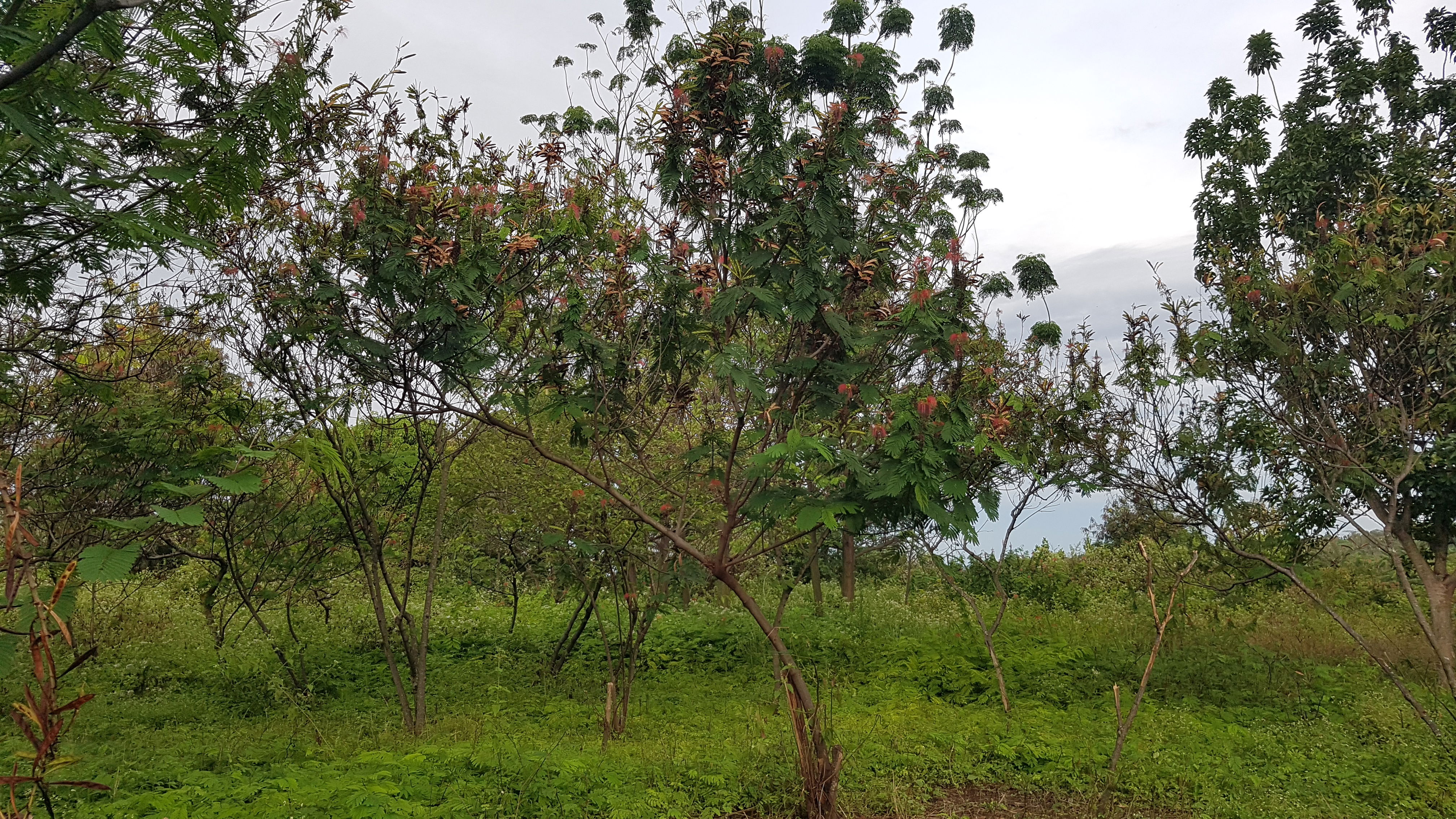
Recommended Firewood tree species planted in Diocesan Eden Demonstration farm. Photo by Matata Benzamin
The campaign’s dual focus on environmental conservation and livelihood improvement has proven effective. Jessica Mungulemi, the diocesan coordinator for Household and Community Transformation, highlights the holistic approach.
“Our work combines tree planting and growing with education on agroforestry and sustainable farming. Households are encouraged to plant fruit trees like mangoes, oranges, and avocados. These trees not only mitigate climate change but also enhance food security and provide income.”
Over 2,000 households have adopted this model. One such family is that of Atiku Ronald, an environment activist, a tree warden of Emmanuel cathedral who also is a resident of Mvara Ward in Arua City.
“We used to struggle with poor harvests due to negative effects of climate change such as heavy rainfall or drought, but after the seven years of this campaign, I have experienced that there is far much change in crop yield than in the past.” Atiku explains that, “The trees have improved the soil and provide fruits that feed my family and generate income. They have prevented climate change through reforestation and planting trees that absorb carbon in the atmosphere.”
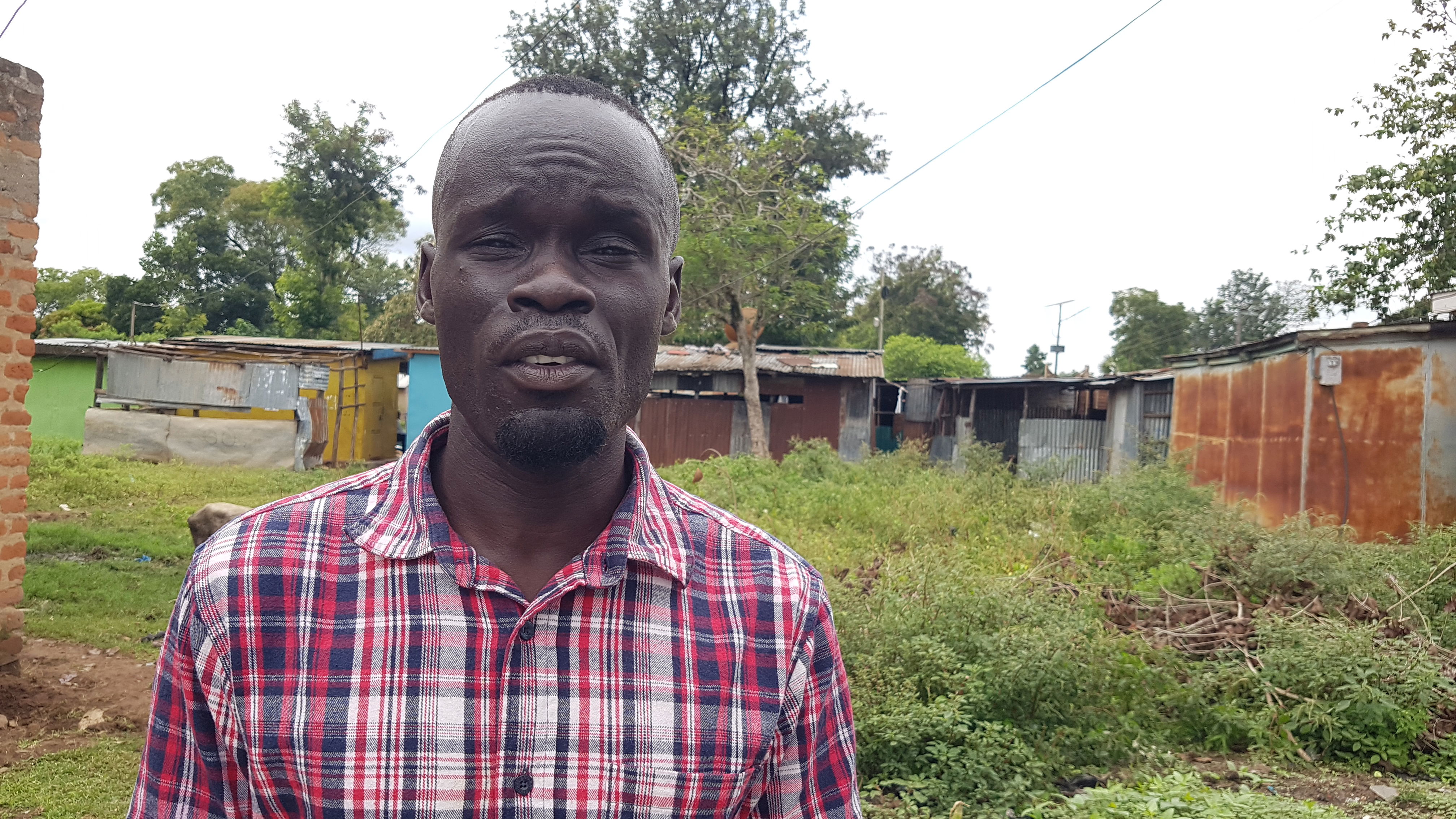
Atiku Ronald, Environment Activist and Tree Warden Emmanuel Cathedral Mvara. Photo by Matata Benzamin
Restoring Nature’s Balance
Deforestation is a major driver of climate change in West Nile.
Environmental activist Alfred Olega underscores the importance of reversing this trend.
“Forests act as carbon sinks, reducing the greenhouse gases that drive global warming. By planting over a million trees, the diocese has boosted forest cover, helping regulate temperatures and restore biodiversity.”
The campaign prioritizes planting indigenous tree species such as mahogany, moringa, tika, pine, and others which thrive in the local ecosystem and support wildlife, ensuring both climate and ecological benefits.
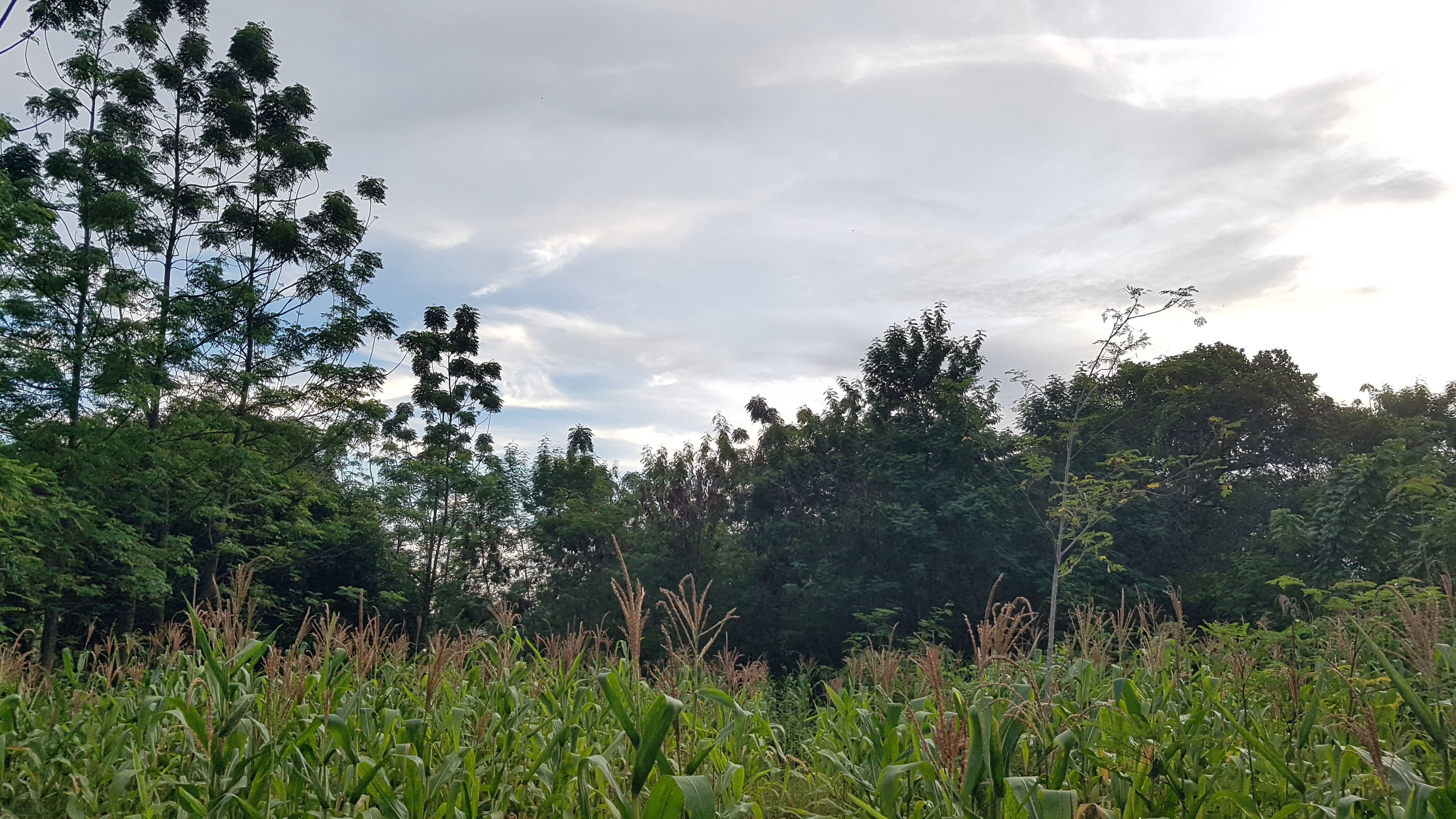
Food crops planted alongside the trees. Photo by Matata Benzamin
Youth Involvement
Youth engagement has been a cornerstone to the initiative. Bayo Francis, Youth Chairperson for Ayivu Division in Arua city, has been instrumental in mobilizing young people.
“The youth are the stewards of tomorrow’s environment,” Francis explains. “Through this campaign, we’ve gained skills in nursery management and sustainable land use. It’s not just about planting trees but it’s about fostering responsibility and care for nature.”
Hundreds of young volunteers have embraced the cause, ensuring the campaign’s sustainability and proving that conservation can inspire and unite.
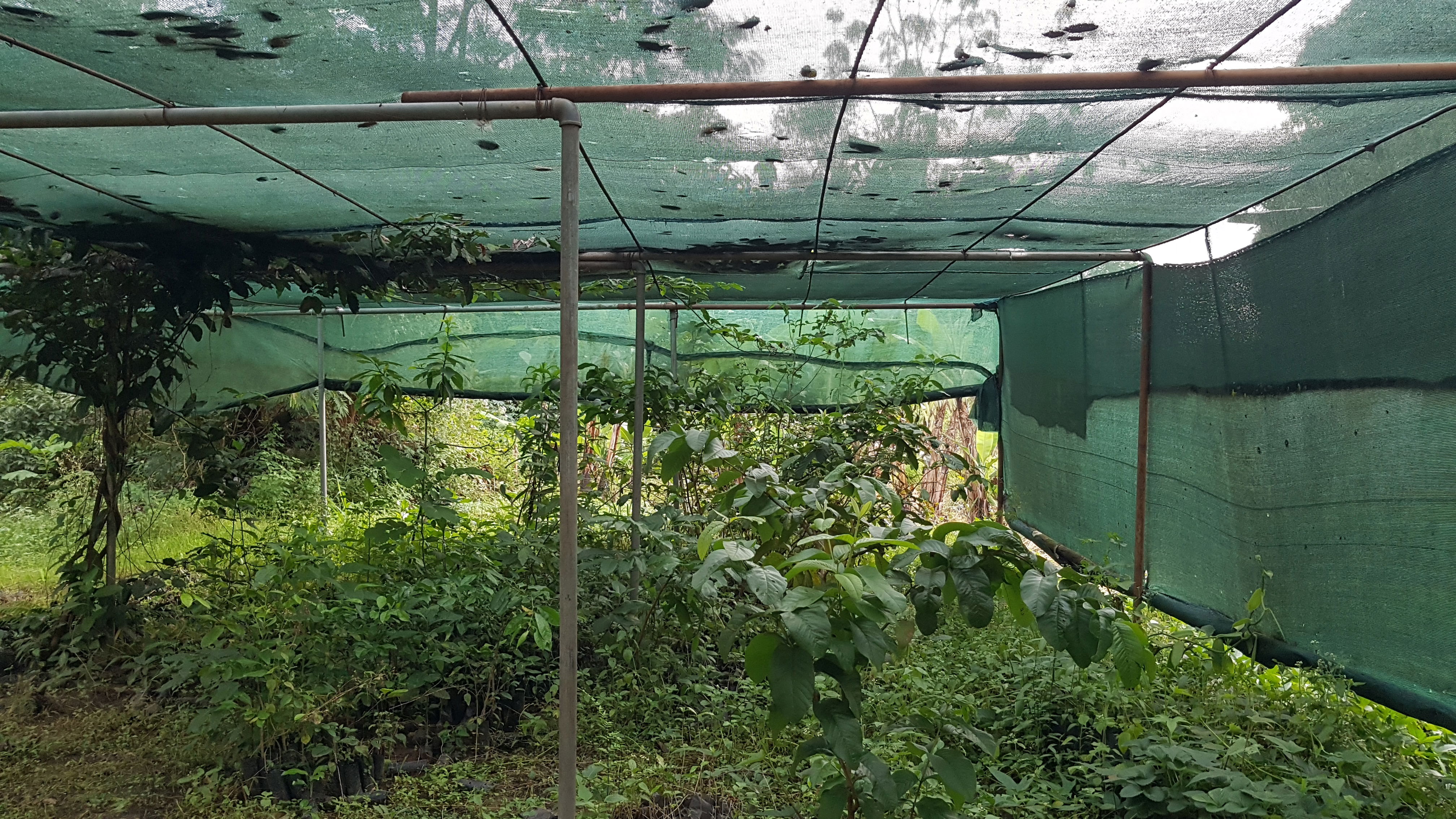
Section for Nursery bed at Diocesan farm. Photo by Matata Benzamin
Overcoming Challenges
Despite its success, the campaign has faced hurdles, including limited funding, inadequate tools, and occasional resistance from some community members. Partnerships have been vital in addressing these challenges. Organizations like the National Forestry Authority and local governments have provided resources like tree seedlings and technical support.
Mary Dawaru, the Arua City Environment Officer noted that collaboration with likeminded partners has been key to overcoming challenges.
“Together, we’ve amplified awareness and expanded the impact of this campaign. People planting other type of trees like eucalyptus in the buffer zones or wetlands are draining out the water and others build in wetlands which in turn affects them”
Sensitization efforts have also been crucial. By demonstrating the tangible benefits like improved agricultural productivity and better microclimates, the campaign has won over skeptics.
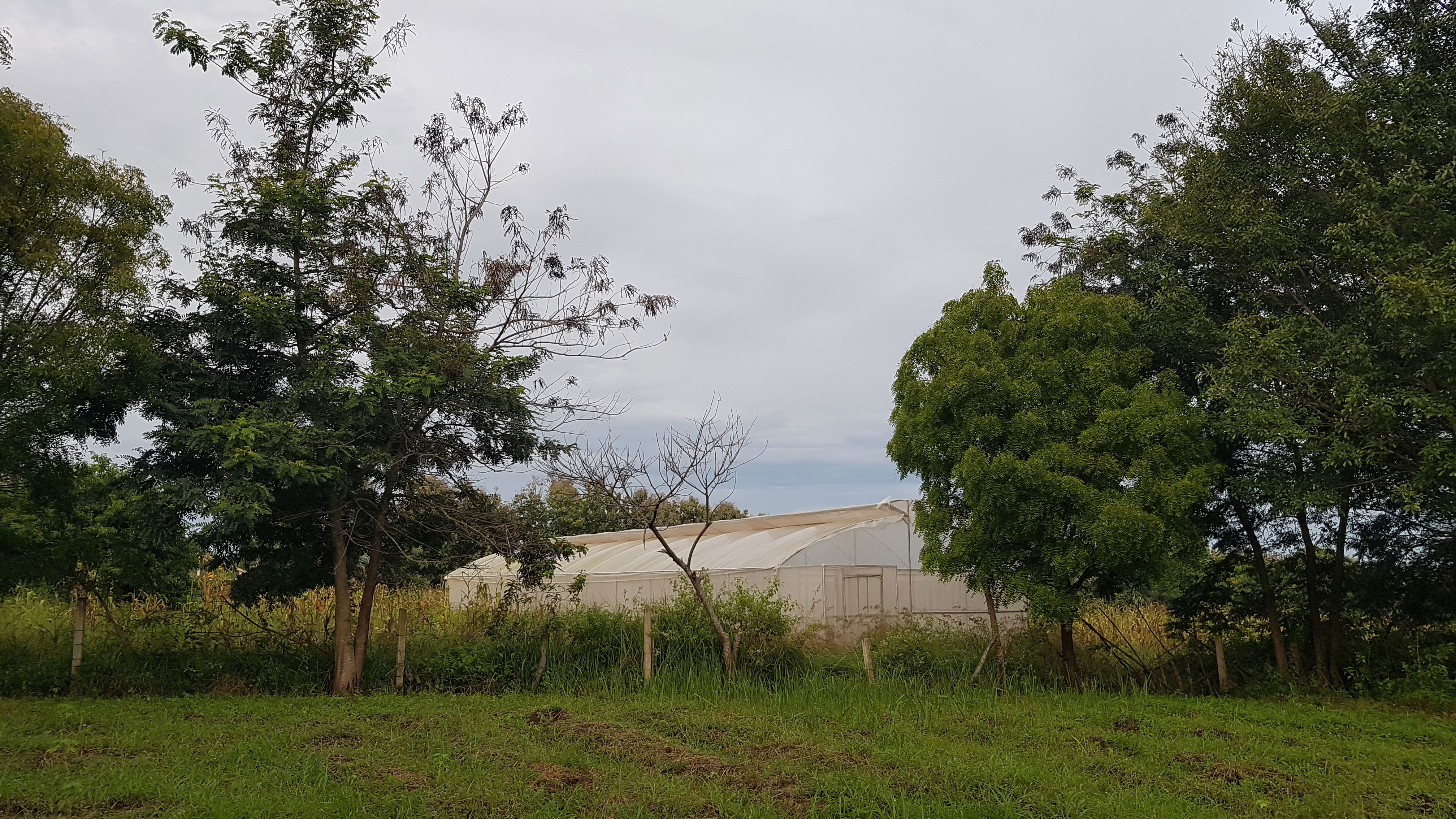
Greenhouse at Diocese's Eden Demonstration farm. Photo by Matata Benzamin
Resilient Future
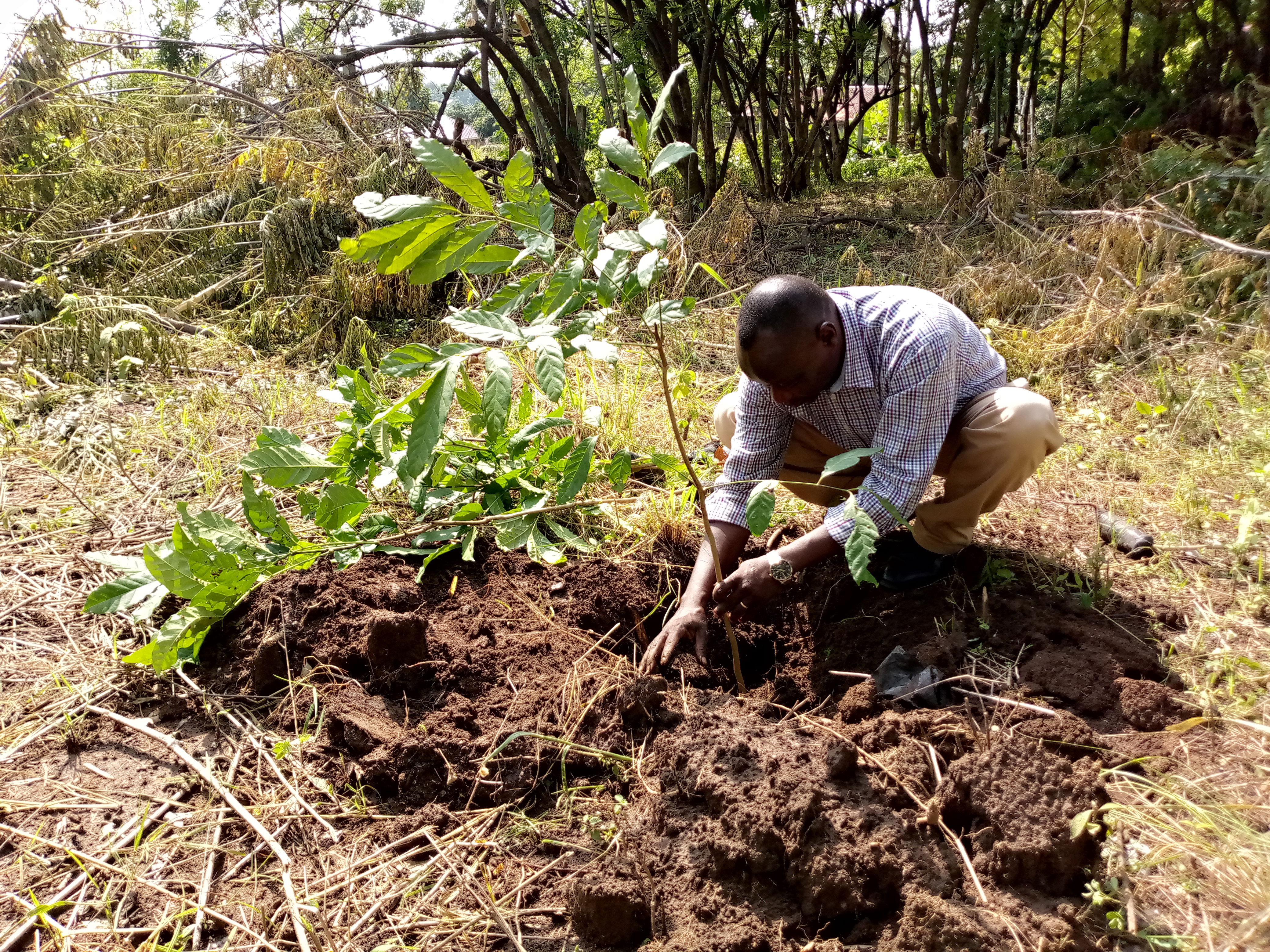
Diocesan Secretary Nasser Godfrey symbolizing tree planting earlier this year during environment week. Photo by Matata Benzamin
As climate change continues to pose challenges, the Madi and West Nile Diocese’s campaign serves as a blueprint for resilience. Its emphasis on sustainability, education, and community ownership ensures lasting impact. Looking to the future, Bishop Andaku envisions scaling up efforts.
“Our goal is to plant 10 million trees by 2030,” he says. “We’re also exploring renewable energy solutions and water conservation projects. Combating climate change demands a multifaceted approach,” concluded Bishop Andeku.
This story was produced with support from InfoNile in partnership with Palladium under the Climate Smart Agriculture project.